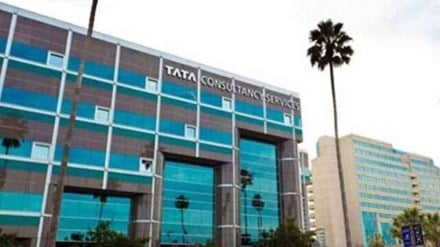The March quarter earnings season has got off to a sedate start, with a handful of companies surprising the Street, but many others missing estimates. Among the good performers are Nestle, Bajaj Auto and UltraTech, while results from Infosys, Hindustan Unilever and Avenue Supermarts have disappointed.
Aggregate topline growth has not managed to hit double digits, one reason for which is that Reliance Industries’ consolidated net sales are up just 2.7% year-on-year. For a sample of 173 companies (excluding banks, financials) net sales are up 9.3% y-o-y. RIL accounts for about a third of the total sales of the sample. With raw material cost coming down, operating profit margin for the sample has expanded by 50 basis points y-o-y. However, with bigger interest and depreciation costs, net profit is up just 4.5% y-o-y. Again, a big chunk of the total profit has come from RIL, which has posted a 19% rise in net profit.
Also read: Kotak Mahindra Bank PAT up 26%
Despite reasonably good topline growth, many have missed margin estimates, suggesting that not all companies have regained pricing power to cover the higher raw material costs. At Trent, for instance, revenue has soared 64% y-o-y, gross margin has contracted 600 bps and Ebitda margins 83 bps y-o-y. At Hindustan Unilever, too, gross margin at 48.7% is down 80 bps y-o-y, although revenue has gone up 10.6% y-o-y. Volumes have grown just 4% y-o-y during the quarter with rural demand remaining lacklustre. Even at Nestle, where the results are otherwise very good, gross margin is down 150 bps y-o-y impacted by inflation in milk and other products. Gross margin at Tata Consumer has contracted 280 bps y-o-y, although revenue has grown 14% y-o-y, but Ebitda margin is up 15 bps.
To be sure, companies like Nestle and Bajaj Auto, which boast big brands, have demonstrated some level of pricing power. Nestle’s revenue has grown a strong 21% y-o-y, driven by both volumes and pricing. Bajaj Auto has managed to get better average selling price for its products, which has helped push up revenues despite a 13% decline in volume. The firm’s Ebitda margin has expanded 220 bps y-o-y. Although Maruti Suzuki’s operating margin has expanded by 140 bps y-o-y, the Street is disappointed, pointing out that the ASP has not increased as expected. In fact, seen sequentially, Maruti’s ASP has remained flat despite price hikes.
However, urban demand does not seem to have been uniform. Retailers like Avenue Supermart have been unable to grow their sales as expected. Analysts point out that the weak revenue growth implies revenue per average square foot remains below pre-pandemic levels. Online retailer IndiaMart reported flat net profits for the quarter, although revenue from operations grew 33%. Consumer durables player Voltas has also reported weak numbers as margins contracted and operating profits fell.
The big disappointment has been the IT pack, with the heavyweights reporting muted numbers in the wake of a general slowdown in tech spends following from macroeconomic weakness and uncertainty.
Infosys, for instance, has reported a sharp sequential revenue decline of 3.2% following aggressive cuts to discretionary spends and a one-time revenue impact of about 1% from project cancellations. Besides, deal wins are muted and the revenue growth guidance for FY24 of 4-7% is underwhelming.
Also read: Kotak Mahindra Bank PAT up 26%
TCS has reported a marginal miss in revenues and Ebit margin. Deal wins at TCS are a strong $10 billion. The slowdown in the US and Europe will hurt business for India’s software firms. Analysts are pencilling in slower spends on technology over the next few months, partly due to the banking crisis, translating into muted demand for IT firms. However, they believe business could pick up in the second half of FY24 due to gains from vendor consolidation and execution.
